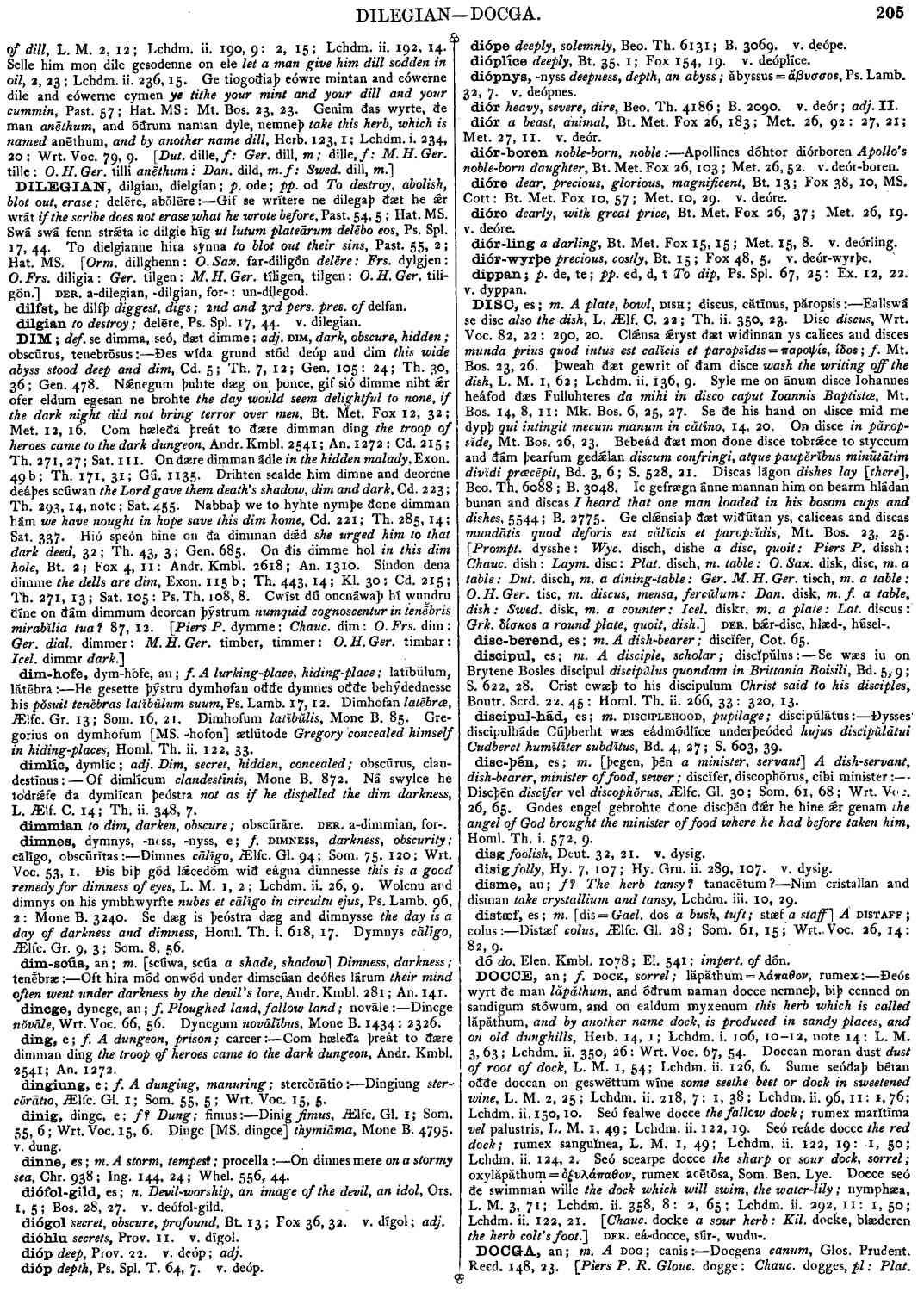DOCCE
- noun [ feminine ]
-
Ðeós wyrt ðe man lăpăthum, and óðrum naman docce nemneþ, biþ cenned on sandigum stówum, and on ealdum myxenum this herb which is called lăpăthum,
and by another name dock, is produced in sandy places, and on old dunghills,
- Herb. 14, 1; Lchdm. i. 106, 10-12, note 14: L. M. 3, 63; Lchdm. ii. 350, 26: Wrt. Voc. 67, 54.
-
Doccan moran dust
dust of root of dock,
- L. M. 1, 54; Lchdm. ii. 126, 6.
-
Sume seóðaþ bétan oððe doccan on geswéttum wíne
some seethe beet or dock in sweetened wine,
- L. M. 2, 25; Lchdm. ii. 218, 7: 1, 38; Lchdm. ii. 96, 11: 1, 76; Lchdm. ii. 150, 10.
-
Seó fealwe docce the fallow dock; rumex marĭtĭma
vel
palustris,- L. M. 1, 49; Lchdm. ii. 122, 19.
-
Seó reáde docce
the red dock;
rumex sanguĭnea,- L. M. 1, 49; Lchdm, ii. 122, 19: 1, 50; Lchdm. ii. 124, 2.
-
Seó scearpe docce the sharp or sour dock, sorrel; oxylăpăthum = òξυλάπαθoν, rumex acētōsa, Som. Ben. Lye. Docce seó ðe swimman wille
the dock which will swim, the water-lily;
nymphæa,- L. M. 3, 71; Lchdm. ii. 358, 8: 2, 65; Lchdm. ii. 292, 11: 1, 50; Lchdm. ii. 122, 21.
Bosworth, Joseph. “DOCCE.” In An Anglo-Saxon Dictionary Online, edited by Thomas Northcote Toller, Christ Sean, and Ondřej Tichy. Prague: Faculty of Arts, Charles University, 2014. https://bosworthtoller.com/7743.
Checked: 0